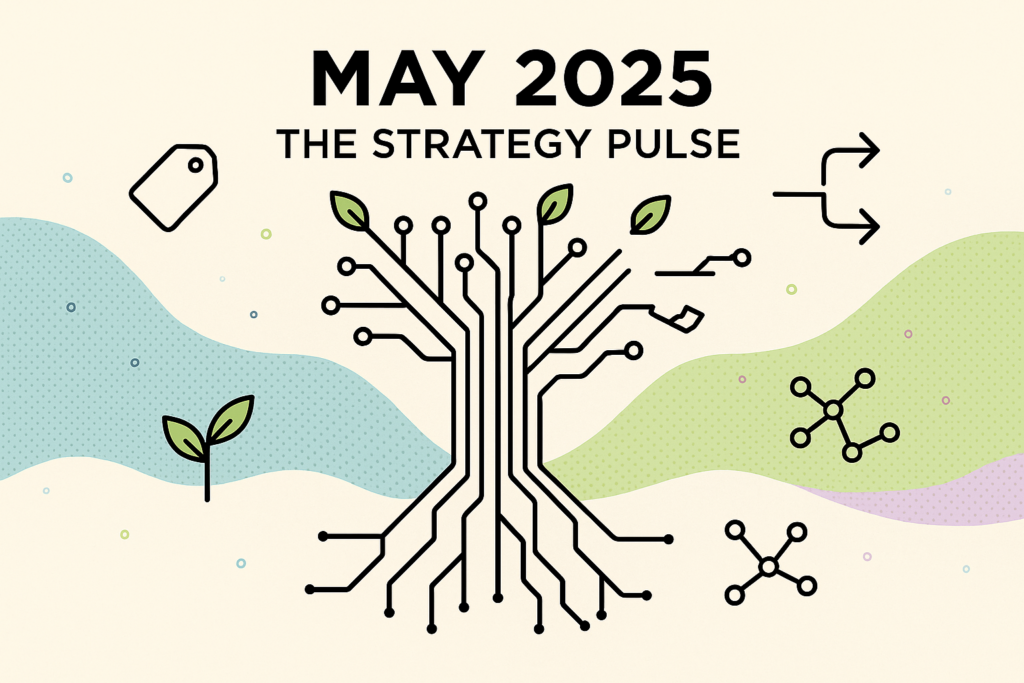
Red Flags in Job Ads
Red Flags in Job Ads
September 8, 2022

Online dating is a necessary evil in the world of modern romance. The vast majority of singletons in this day and age have resorted to dating apps at some point or another. You become trapped in a viscous cycle, as you redownload Hinge and Tinder out of boredom, swipe mindlessly for hours on end, muster up the energy to respond to a few uninspiring matches, before growing frustrated and deleting it all over again.
If this sounds like an eerily familiar experience, chances are you’re well-versed in spotting red flags in a potential suitor. When you spend long enough on the apps, you develop a kind of sixth sense, a superpower that instantly defends you against falling into a toxic relationship. You know, for example, to swipe left on a portfolio of exclusively shirtless selfies. You’re saving yourself a lot of time and energy in the long run.
But do you have the same level of vigilance when job hunting? Looking for a new career is similar to dating. You need to figure out if the company is a good match for you, and warning signs can rear their head as early as the initial application stages. Job postings may be rife with clues that inadvertently put you off applying, and it’s crucial that you know how to find them.
Don’t sell yourself short
It’s unsurprising that pay range is one of the first things candidates look for on a job ad. It’s the equivalent of that first photo on a dating profile; it’s the first impression that very quickly helps you decide whether to swipe right or left.
The pay range section of a job posting can very easily become a breeding ground for red flags. According to a recent survey by Paychex, 65% of job seekers are instantly put off when companies refuse to include a salary on their job ad. You expect the worst, assuming that the pay is lower than average.
When a salary is included, but it’s significantly lower than industry standards, it’s easy to want to dismiss it right away. Whilst it’s important to know your worth and not sell yourself short, you shouldn’t write it off completely. Do some more digging; if the company is willing to compensate you in other ways – with a competitive benefits package, for example – they may be able to make up for a slight reduction in pay. This comes down to personal preference, and the ball is in your court.
Great expectations
Whilst every job has its requirements, an employer’s expectations should always be clear, concise, and reasonable. When a huge chunk of a job ad is taken up by a series of bullet points detailing the experience and skills necessary for the role, this could be a major red flag. If it reads more like a grocery shopping list than a job posting, you know you’ve got a problem.
A long list of requirements could reveal a host of problems with the company. If they’re looking for a candidate with the skillsets and specialisms of five different roles combined in one superhuman person, this is a tell-tale sign that something is amiss. It could indicate that the hiring manager actually has no idea themselves what they’re looking for. They’ve built up a hyper-idealised profile of a candidate that simply doesn’t exist. If they can’t explicitly lay out what they’re looking for, how on earth would they be able to support you in the role?
Or perhaps they’re excessively hard to please. If it’s an entry-level role that requires three years of experience, for example, they may not be sympathetic to the challenges of the job search. If they’re placing these unrealistic expectations on you before you’ve even applied for the role, how will they behave once you’ve stepped foot in the office? Be wary of a job ad that doesn’t shy away from telling you all about their unfalteringly high standards.
Read between the lines
In job postings, it all comes down to the wording. Channel your inner English Language GCSE student, analysing the phrasing and language used. When you read a job ad carefully, you’ll often find that the personality of the company shines through.
If a job ad is studded with phrases like “competitive and fast-paced environment” to describe the workplace, or if it uses adjectives like “flexible” or “highly self-motivated” to describe their ideal candidate, this may be a tell-tale sign of a toxic work environment that places heavy demands on its employees. When decoded, this often translates to working late or on weekends, and competing with co-workers. Whilst some may thrive in this type of workplace, it’s definitely not for everyone.
Also, if a job posting attempts to win you over with the promise of “gaining experience” – especially in an entry level role – this could be a thinly-veiled sign that they’re exploiting your lack of expertise to make you work for less.
And, obvious as it may sound, spelling mistakes are a major red flag. They stick out awkwardly on the page like a sore thumb. There’s nothing more frustrating than spending hours crafting and honing your CV to perfection, checking every last detail for errors, only to encounter an easily avoided spelling mistake in the first sentence of a job ad.
It’s not me, it’s you
Imagine going on a date with a narcissist. Sat opposite you, they embark on a monologue about themselves, barely pausing to take a breath, for fear that you might dare to interrupt their solo act. Whilst they take centre stage, you sip your wine and roll your eyes, an unwilling audience of one to their tragic performance. They won’t ask you any questions about yourself, obviously.
Well, employers can have narcissistic tendencies too. And it may be possible to find signs of a self-centred employer in the job ad in front of you. When the job posting is excessively one-sided, laying out everything they expect from you in excruciating detail, you should be cautious. Whilst reading a job ad, you need to ask yourself the question: what’s in it for me?
What are the exciting elements of the job? What sets this company apart from the rest? How do they reward and invest in their employees? If you come to the end of a job ad and still can’t answer these questions, it’s a red flag.
Companies need to compose compelling job postings that draw in top talent. If they’re not doing this, they could be showing their true colours.
Now, if you happen to encounter any of these red flags in a job posting, don’t fret. Just like dating, there’s plenty more fish in the sea.

